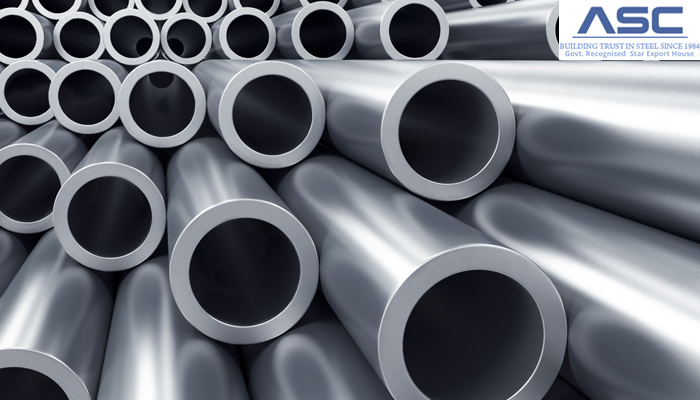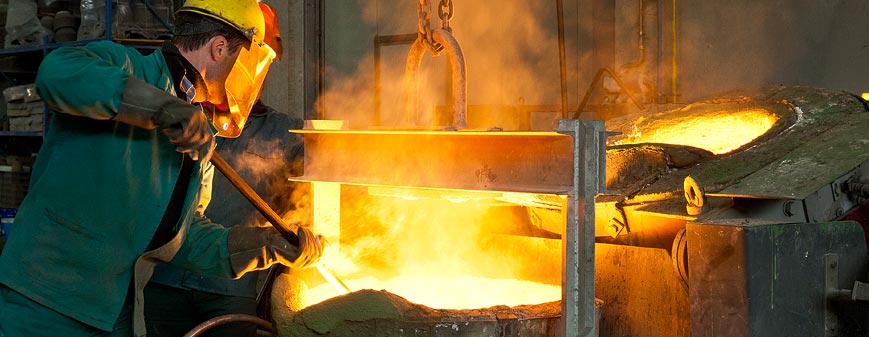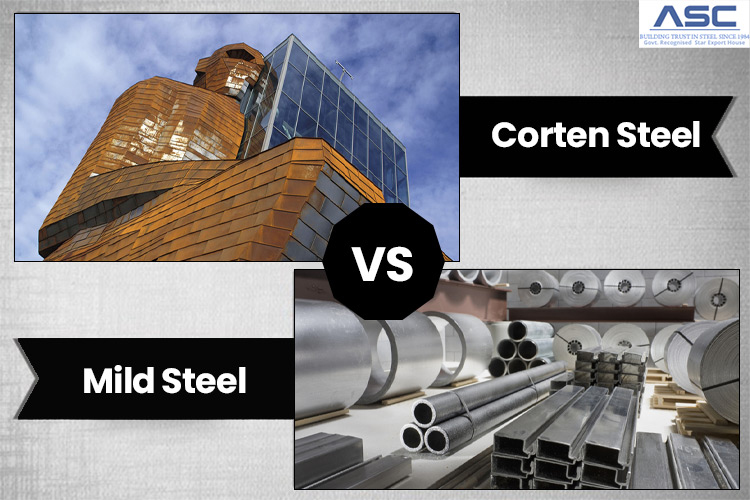Properties And Uses Of Alloy Steel
Posted on December 21, 2021 at 3:00 PM

Alloy Steel Introduction
If you've been looking for information about one of the most important and commonly used metals, this is the article for you. Alloy steel refers to a type of metal that's made from two or more different alloys combined. You would normally see alloy steel in construction materials and machinery components, especially machinery parts that are essential for extracting resources such as oil or ore.
What is alloy steel?
Alloy steel is a specific type of steel that is made by adding small amounts of certain elements or alloys to pure carbon steel. Alloy steels generally have properties such as greater strength, hardness, and wear resistance than pure carbon steel. Alloy steel is a type of steel that contains multiple metals mixed in varying proportions. This makes it stronger and more durable than plain carbon steel. The two most common alloys are low-carbon, or low-alloy, steel, and high-alloy, or alloy, steel. Alloy steel is a type of steel that contains a mixture of two or more different types of metal, such as iron and nickel. These alloys are used in engineering applications, construction materials, or other industrial purposes. The properties of an alloy can be varied by the proportions and types of metals in the mix.
Properties of Alloy Steel
|
Element |
Symbol |
wt. % |
Function |
|
Aluminium |
Al |
0.95–1.30 |
Alloying element in nitriding steels |
|
Bismuth |
Bi |
– |
Improves machinability |
|
Boron |
B |
0.001–0.003 |
Improves hardenability |
|
Chromium |
Cr |
0.5–2.0 |
Improves hardenability |
|
4–18 |
Corrosion resistance |
||
|
Copper |
Cu |
0.1–0.4 |
Corrosion resistance |
|
Lead |
Pb |
– |
Improves machinability |
|
Manganese |
Mn |
0.25–0.40 |
Prevents brittleness in combination with sulfur |
|
>1 |
Increases hardenability |
||
|
Molybdenum |
Mo |
0.2–0.5 |
Inhibits grain growth |
|
Nickel |
Ni |
2–5 12–20 |
Increases toughness Improves corrosion resistance |
|
Silicon |
Si |
0.2–0.7 |
Increases strength and hardenability |
|
2 |
Increases yield strength (spring steel) |
||
|
Higher % |
Increases magnetic properties |
||
|
Sulfur |
S |
0.08–0.15 |
Improves machinability (free-machining steel properties) |
|
Titanium |
Ti |
– |
Reduces martensitic hardness in Cr steels |
|
Tungsten |
W |
– |
Increases hardness at high temperatures |
|
Vanadium |
V |
0.15 |
Increases strength while maintaining ductility, promotes fine grain structure |
Alloy steel has a nano-crystalline structure that is difficult to detect with optical microscopes. This gives the steel its ability to have a high strength and impact resistance without being brittle. It also helps the metal to reduce corrosion, resist fatigue, and last longer than most other steels. Some of the most common alloys used for alloy steel are nickel, chromium, manganese, copper, and cobalt. Alloys of steel are made by mixing different types of metal. This is the method used to create lighter and stronger materials.
Alloy steels have different properties from standard steels because the alloy creates a material that has properties that normal steels cannot achieve. Some examples of properties in alloys are increased strength, increased toughness, and reduced corrosion rates. Alloy steel is a type of steel that is made from two or more different types of metals. The mixture of alloys includes chromium, nickel, manganese, molybdenum, vanadium, and tungsten.
Alloy steels are typically more corrosion resistant, harder, stronger, and more flexible than ordinary carbon steel. Alloys have the benefit that they can be hardened and tempered for optimal performance in a variety of applications.
Uses of Alloy Steel
Alloy steel is an alloy of iron with other elements. The most common alloying element is nickel. Alloy steel can be strengthened through adding other alloying elements such as chromium, manganese, or molybdenum. Alloy steel is more resistant to corrosion than plain carbon steels, but it is significantly more expensive than the latter type of steel.
Alloy steel is a general term for steel that is made of two or more metals. It is also known as non-ferrous metal. Alloy steels are used in everything from construction to weapons and automotive components. There are many benefits of using alloy steel, including its corrosion resistance which results in lower maintenance costs. Alloy steel is a general term for steels that contain one or more different types of alloying elements. They are usually used in high-strength steel, ballistic steel, and stainless steel. Alloy steels have specific properties depending on the kind of alloying element they possess. For example, the addition of chromium increases corrosion resistance and wear resistance while tungsten increases toughness and strength.
Some Typical Applications for Alloy Steel
Steel is the main material in every building you see. It has become popular in recent years because of its great qualities and properties. Steel's properties depend a lot on what elements are in it and how much of each one is there. The World Steel Association says that about 1808 million tonnes of crude steel have been made around the world and that 50% of that production has been used in the building industry. Also, it said that the industry has 3500 different grades, each of which has its own chemical composition and quality.
Because of its great composition and many uses, many steel dealers in Mumbai sell a lot of alloy steel to their customers. Alloy Steel is made when carbon steel is mixed with things like vanadium, silicon, nickel, manganese, copper, and chromium. So, let's look at what makes alloy steel different in this post.
Building Structures:
In the form of skeleton frames, alloy steel is used to build stadiums, skyscrapers, airports, and bridges. Alloy steel gives the structure enough strength to hold it up. Even when concrete is mixed with alloy steel, the steel acts as a reinforcement to make the building stronger and lighter. The SAIL TMT bar gives them a high-quality alloy steel that they can use in their projects.
Building Bridges:
As has been said before, weathering steels, which are a type of alloy steel, are used in bridges. Weathering steels are used to make bridges. They are made up of nickel, copper, and chromium, which are called alloying elements. Because there are alloying elements in the building, it won't rust. The advantages are high safety, low maintenance, and the ability to make changes in the future. The building doesn't need to be painted because its natural finish has been worn down by the weather. This gives it an artistic look.
Flat products:
High-quality alloy steel is used to make flat plates and strips for welding in the building trade. There are different grades and sizes of these plates. When making MS chequered plate, alloy steel is sometimes used.
Coil Products:
Alloy steel strips can be rolled hot or cold, and they can also be galvanised by being dipped in hot water. These hot-dipped galvanised coils are used to make building materials like side rails, light steel frames, roof purlins, and lintels.
Pipe Products:
The other benefit of using alloy steel is that it can be turned into pipes made of alloy steel. The alloy steel pipes are put in place without being heated, and they last a long time. Large-diameter welded pipe, seamless pipe, electric-fusion welded pipe, and welded pipe are all types of special alloy steel pipes. They are useful in places with high temperatures and pressure.
If you want something that will last a long time and stay stable, alloy steel will meet your needs. Even the price of alloy steel MS plate in Mumbai is less than in other places. Make sure to buy high-quality steel for your dream project so that it will last a long time.
Conclusion
Alloy steels play an important role in the building and construction industry, as well as in other industries, as can be seen from the preceding. Alloy steels are cost-effective, high-performing, corrosion-resistant, long-lasting, strong, have a high strength-to-weight ratio, and perform well under adverse conditions.
Amardeep Steel Centre is a supplier of steel and other items and guarantees that its products pass a series of tests to ensure that they are pure and high-quality. For more updates, you can read our other blogs on our website and gain a deeper understanding of our products for your next business needs.

Difference between low-alloy steel & high-alloy steel
In general, there are certain variations occur between low alloy steel and high alloy steel. Low alloy steel is nothing but alloy steel whereas the high alloy steel is stainless steel with alloy mixture.

